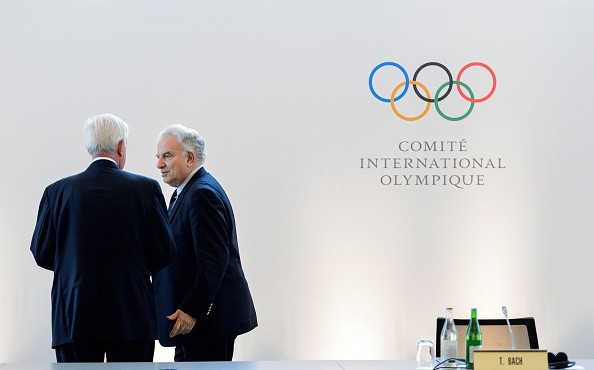Russia escaped from a total disqualification of its entire contingent in the 2016 Rio Olympics, despite pleas from anti-doping agencies calling for a complete ban. The International Olympic Committee (IOC) has left the decision whether to ban Russian competitors or not to the respective governing bodies of each sport.
The IOC, in a statement posted on its official website, defined criteria in order to declare a Russian athlete eligible to participate. One of these is that any Russian athlete who has ever been sanctioned for doping will not be eligible, regardless of whether the violation or suspension has already been served or not. As such, Russian track and field competitors have already been disqualified from Olympic participation.
The Minister of Sport for Russia, Vitaly Mutko, confidently declared that a "majority" of Russian athletes will pass the requirements. However, part of the ban from the IOC extends to Russian Olympic officials, as it said that no member of the Ministry of Sport is welcome to participate in any form in Rio 2016.
In a few hours after the IOC came out publicly with its decision, the International Tennis Federation (ITF), which is the governing body for tennis, allowed all eight Russian tennis players who qualified to participate in the Olympics, in a statement posted on the ITF official website. The ITF statement also detailed that these eight Russians were subject to anti-doping measures outside Russia since 2014, such as a total collection of 205 samples, with 111 urine samples and 94 blood samples, and said that it believes that those measures are sufficient to allow participation in the Rio Games.
This decision from the IOC is due to a recent report from the World Anti-Doping Agency (WADA), specifically from Canadian law professor Richard McLaren, which detailed widespread Russian government involvement and participation in a doping program during 2011 to 2015. The WADA had previously called for a total ban on the entire Russian Olympic delegation.
The IOC decision came after a three-hour deliberation of the executive board. Mutko called the pronouncement "objective" but "tough" while the United States Anti-Doping Agency (USADA) criticized the IOC for refusal to take "decisive leadership."



























